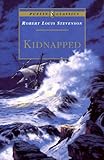A couple of articles I haven’t had time to fully digest yet as I speed ahead on my biography of Tolkien:
Both of these articles are quite worthwhile. They are both, I think, hurt by a desire to “defend the Faith.” Both have their particular virtues on that score as well. The first of these is written by a person from the perspective of a modern traditionalist kind of conservative Presbyterians. The second by an author who is writing to justify leaving that world of thought and society (more or less) and joining the Roman Catholic Church (that is not necessarily the point of the individual essay, but that is the overall perspective and purpose of the website).
In general, I think it is a good thing when Protestants love and appreciate Roman Catholic writers such as G. K. Chesterton or Flannery O’Connor. I think it is a wholesome ecumenicism to appreciate Jesus’ gifts given to the whole Church from outside the Protestant world. But I think it works when we frankly acknowledge where these people come from.
And, when it comes to fiction writing, I think we have a great deal to read from elsewhere. Evangelical Calvinist culture in recent Western history is not overwhelmed with notable authors. All the “Reformed and the Arts” Conferences seem a tacit acknowledgment that most creative types go elsewhere. (In some ways, one could make the case that the PCA is for Hobbits.)
However, writing a glowing tribute in a very Protestant website, with a whimsical comparison of the Pope to the mouth of Sauron at the end, without ever mentioning that Tolkien was a staunch Roman Catholic, seems deficient to me.
But, at the same time, North American Roman Catholics speaking of the importance of “the Mass” to a man who got angry at the way that they do it, also seems lacking. Tolkien was a pre-Vatican II Roman Catholic and the changes he lived to see greatly upset him. Also, I believe that much of Tolkien’s view on myth and truth came from a variety of sources, not all Catholic or even Christian. I am not confident (yet?) that the Mass is behind Sam’s comment about being inside a song.
I realize I’m a Protestant commentator, so I may simply be biased. But then again Tolkien hung out with Protestants and with non-Christians (befriending and seeking input on writing and literature from C. S. Lewis when he was still mostly a skeptic). In his youth, when he conspired with a group of close friends to create an artistic renewal, I don’t think any of them were Roman Catholic. This doesn’t rule out Christian or even distinctively Roman Catholic influences, but it raises the possibility that looking for them for the purpose of emphasizing them may produce a distorted picture.



